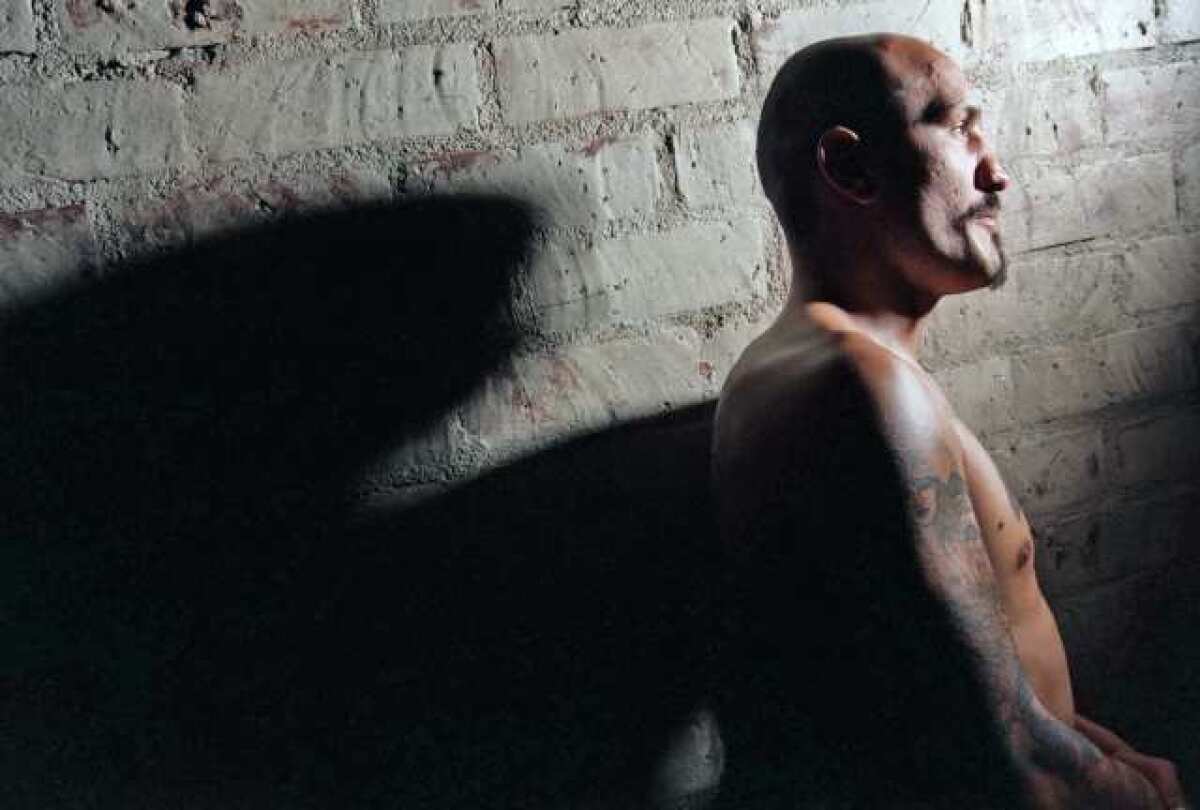Olympic boxer dead at 44

Former junior welterweight contender Hector Lopez, once voted one of the top-25 Glendale athletes of all time by the News-Press, died Monday, according to Fightnews.com, at the age of 44.
Lopez, who lived in Glendale for 12 years and attended Hoover High before winning a silver medal for Mexico in the 1984 Olympics, was found dead in his Mexico City home of heart failure from an apparent drug overdose, according to his longtime former manager Harry Kazandjian.
“It was a great loss in the boxing world,” said Kazandjian, who managed Lopez during the height of his pro career from 1990-98. “He was his own worst enemy. This kid had all the boxing skills in the world that anybody could dream.
“I talked to him maybe three, four days before he passed away, we were talking about getting him a fight. There was some progress, he was in great shape — same Hector, just older — then four or five days later one of his close friends, Jerry Rosenberg, gave me the bad news, that Hector did what he did and is no longer alive.”
Fighting under the moniker “Torero”, Lopez’ amateur career peaked at the ’84 Games in Los Angeles, where he lost on points to Italian Maurice Stecca in the bantamweight gold medal match. He turned professional in 1985 and won 25 of his first 26 fights en route to compiling a career record of 41-7-1 with 23 knockouts before retiring in 2000.
“Leading up to the Olympics, he was a complete role model [for me] because I grew up with him and [1984 Olympic Gold medalist] Paul Gonzalez, we were all in the same circle,” said Hoover graduate Pepe Reilly, who boxed for the U.S. in the 1992 Olympics. “For me, those were pretty much the only guys we had to look up to because they did so well.
“For me, [his death is] tragic. ..He was a tough guy, he was a really, really great fighter, too.”
Lopez held multiple intercontinental and North American boxing titles during his 15-year pro career and challenged for three major titles. He had a number of memorable action-packed fights, including a 10-round loss by decision to future undisputed junior welterweight champ Kostya Tszyu, a hall of famer, in January of 1994.
Lopez also saw his career stalled and interrupted by a turbulent life outside of the ring that included prison stints and struggles with drugs.
“I watched him box in the Olympics in ’84 and watched him compete and make it all the way up to that point,” Reilly said. “I was young, but we rode in the same circles, so I do remember all that stuff. I remember him as a pro boxer in different gyms while I was still coming up as an amateur. He was doing pretty well for a while there before he started getting in trouble outside of the gym.
“Outside of the boxing circuit, I wasn’t too sure what he was doing. I knew he was into drugs and always fighting people on the streets.”
In July of 1989, Lopez, who was 19-1 at the time, was sentenced to four years in prison on a first-degree burglary-gun charge and served one year and seven months. He resumed his boxing career in December of 1991 and went 5-0-1 over his next six fights to earn a World Boxing Council lightweight title shot against Miguel Angel Gonzalez on April 26, 1993.
“When he came out, we had to rebuild his career again,” Kazandjian said.
He would later challenge Sammy Fuentes for the WBO light welterweight title in June of 1995 and lost in a hard-fought 12-round decision, but was suspended for a year by the Nevada Athletic Commission for testing positive for marijuana soon after the bout. He challenged Randall Bailey for the same belt in Dec. 1999, completing another comeback after a second prison stint.
Lopez’ biggest wins included a 10-round decision against Juan La Porta in May of 1992, an 11th-round TKO of Donald Stokes for the North American Boxing Federation light welterweight title in September of the same year and a unanimous decision over John Avila in Nov. of 1996.
“His name comes up in the gym once in a while,” Reilly said. “He was a tough guy, really good fighter, on the verge of being a brilliant fighter, but didn’t have the temperament or the stability to be a professional athlete. He had too many issues in the outside world.”
According to Fightnews.com, Lopez was aiding in the training of the Mexican national team.
He is survived by his former wife Norma and his two sons, Adam and Hector Jr.